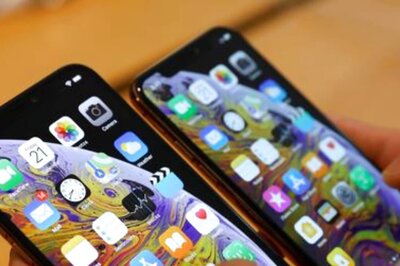
views
1. EaaS, or Everything-as-a-Service
"Productisation", or the ability to package a solution or process into a saleable product, was once the Holy Grail of businesses. Design a better mousetrap and the world would beat a path to your door. But more businesses today are realising it is better to offer pest control as a perpetual paid service instead of selling a mousetrap as a one-off affair. Customers get locked into predictable contracts which become more profitable over time.
So in Bangalore, Anu Solar offers i-HOT, a metered service that supplies solar-heated water by the litre without any major upfront investments. In countries like Israel, Japan and the US, ex-SAP Chief Technology Officer Shai Agassi's company, Better Place, offers electric car transportation as a paid-service to customers who need not bother about charging points or battery lives at their end.
As EaaS grows in popularity, innovative financial models will evolve, as EaaS will require companies to make upfront capital investments and recover it from customers over many years.
2. Conglomerate Discount or Premium?
Big corporate groups that operated in multiple industries weren't supposed to be a good idea. Stock market investors mostly valued them at less than the sum of their various business arms, for reasons ranging from lack of deep expertise across businesses, less transparency in disclosing financial numbers and extra layers of management required to carry an unwieldy ship. GE seemed to offer a live example of the pitfalls of running too many businesses. But as GE hives off businesses not core to what it considers its strengths - BPO provider Genpact, television network NBC Universal, GE Plastics - a bunch of new global companies are trying to become the new conglomerates: Google is building its own servers and solar panels, acquiring content from authors and media companies, creating operating systems and programming languages and digitising satellite and space maps for consumers. The list of businesses owned by the Tata group (India's largest IT services company, luxury hotels, DTH television services, steel manufacturing, water purification, automobiles) would put even GE to shame. Apple, originally just a computer maker, today makes all types of electronic devices, runs the world's most successful music app (iTunes) and mobile phone application services (iPhone App Store).
3. Augmented Reality
"How do you define real? If you're talking about what you can feel, what you can smell, what you can taste and see, then real is simply electrical signals interpreted by your brain," went one of the most popular dialogues from The Matrix. And if that reality is, well, boring, then technology is now finally at a stage for us to experience a more interesting "augmented reality".
MIT Media Lab's SixthSense project lets users equipped with its prototype (a pocket projector, mirror and camera) overlay real-time information from the Internet on top of daily activities like shopping, reading a newspaper or even making a phone call (see page 60).
When you switch on the camera of an Android-powered mobile phone equipped with GPS, the Wikitude World Browser will overlay information about, landmarks and other places of interest in real time. Hold up the camera at Abbey Road in London and Layar's augmented reality application will overlay what you see on screen with a picture of the Beatles crossing the road. With more mobile phones being sold with high quality cameras, 3G speeds and GPS location sensors, 2010 might be the break-out year for changing reality into what you want it to be.
(Compiled by: Rohin Dharmakumar, Shishir Prasad, S Srinivasan, Peter Griffin, Neelima Mahajan-Bansal)




















Comments
0 comment